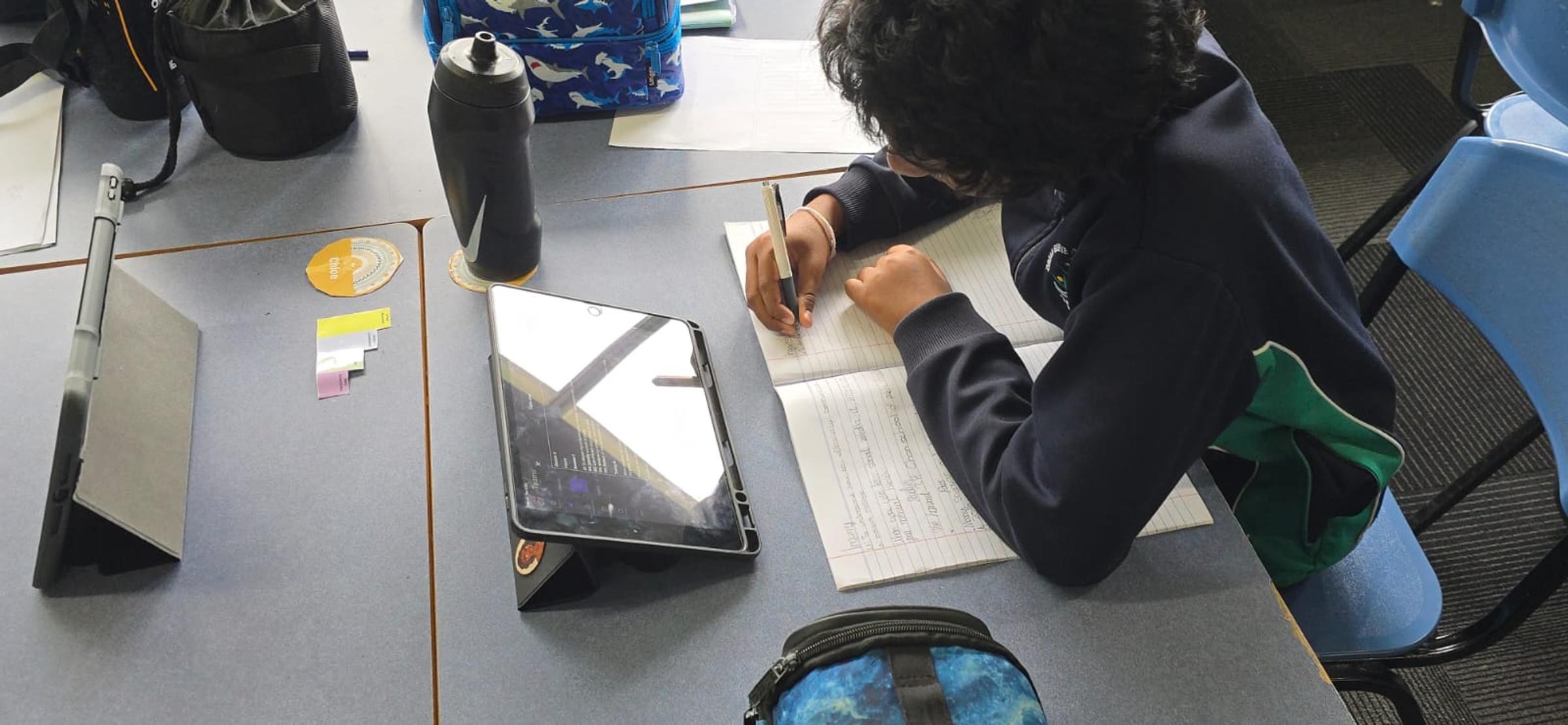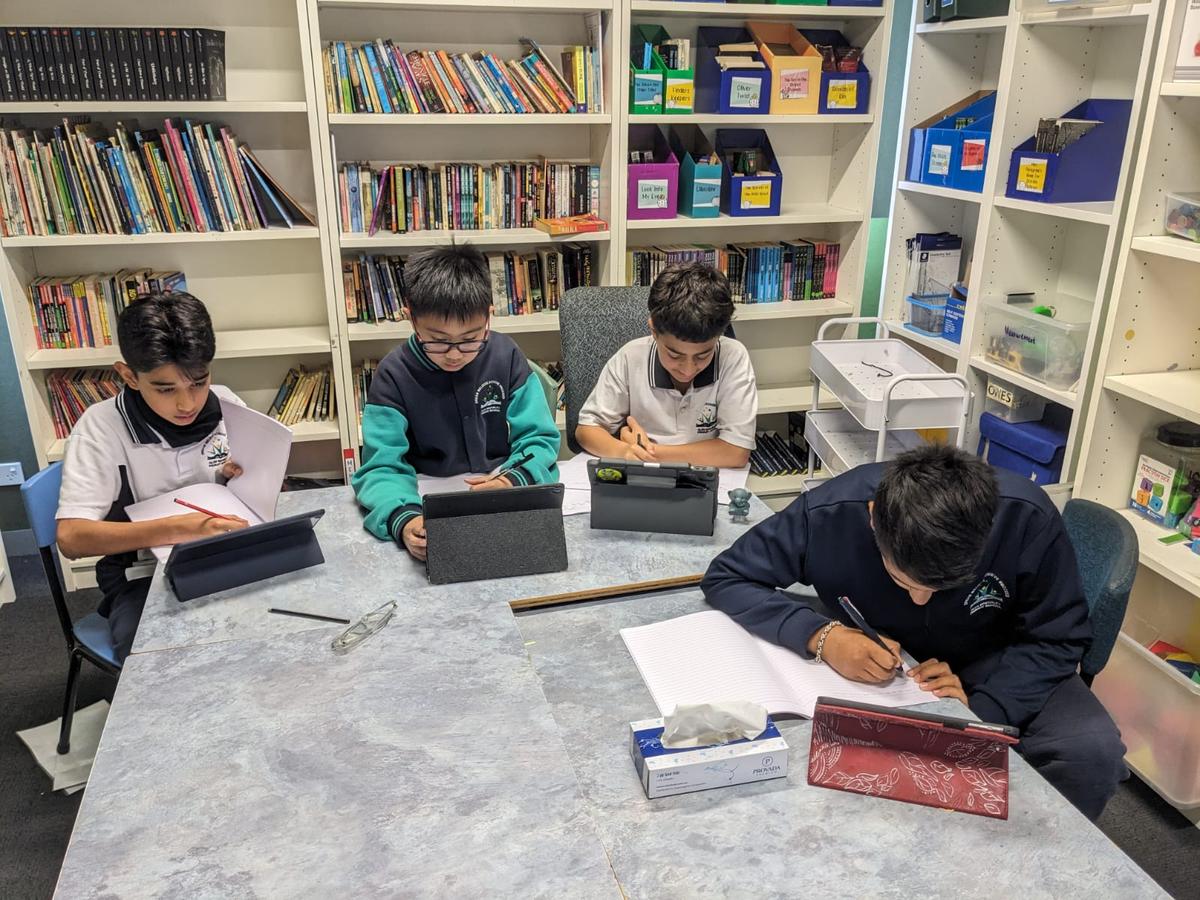English

Reading
Students will begin the term by diving into the exciting world of poetry. They will analyse different poems; comparing how language devices are implemented to share messages and elicit imagery in the reader’s mind. As the term progresses, students will analyse a range of famous speeches, identifying the intended audiences and language features used to ‘hook’ them in. Students will explore the different purposes of speech writing, discovering how language can be altered to inform, persuade or entertain their audience. The deep analysis of speeches will support students as they embark on the exciting project, to craft their own graduation speeches, reflecting on and celebrating their primary school learning journeys.
Alongside the aforementioned learning, students will continue to engage in their much-loved literature circles, with formal lessons relating to this program twice weekly. During the literature circle lessons, students will read a novel with a small group of their peers. They will each have a role that they will work on and share with their peers during weekly discussions about the text. These roles align with students’ CAFE goals and are centred around the four main skills; Comprehension, Accuracy, Fluency and Expand Vocabulary. During this process, students will deepen their collaboration and communication skills while working on reading and understanding a broader range of texts.
Reading Key Vocabulary:
Imagery, visualisation, inference, prediction, devices, audience, purpose
Writing/Spelling/Grammar
In writing, students will engage with poetry in a variety of ways to enhance their writing skills and appreciation. They will learn how to poets convey deep messages and emotions using visualisation and imagery. Students will practice visualising scenes described in poems and use their own imagination to create descriptive and evocative language. In addition to this, they will develop their own vocabularies by exploring and incorporating descriptive language into their own poetry.
As the term progresses, we’re excited to dive into the dynamic world of speech writing in preparation for our Year 6 Graduation. This unit will help students craft compelling speeches that reflect their experiences at Glen Waverley Primary School. They will unpack the importance of understanding one’s audience and how to connect to a specific group, keeping in mind their diverse interests and expectations. Students will also review how to organise a well-structured speech focusing on featuring; strong openings that engage the audience, developed arguments that support both the perspective and flow of the speech and powerful conclusions to summarise key thoughts.
Throughout the term, students also continue to work on their chosen VOICES goal that are centred around the six main skills: Voice, Organisation, Ideas, Conventions, Excellent Word Choice and Sentence Fluency. Developing their own poetry and speech writing through; students refine their ability to express their unique perspectives (Voice), arrange their thoughts coherently (Organization), generate compelling and relevant content (Ideas), adhere to grammatical and stylistic rules (Conventions), select precise and effective words (Excellent Word Choice), and craft smooth, varied sentences (Sentence Fluency).
Writing Key Vocabulary:
Audience, structure, tone, volume, perspective, point of view, argument, call to action
How can you support your child’s English learning at home?
- Share famous speeches that may have impacted your own childhood. Explain to your child how this was inspirational for you.
- Notice and discuss poetic devices during everyday tasks such as identifying descriptive language in songs on the radio.
- Ask your child about the Literature Circle novel they are reading. Is it similar to other texts they have previously read? Why/why not?
- Encourage students to revise and edit their learning focusing on structure of responses.
- Engage in discussions about their chosen topic to help them explore and refine their ideas.

